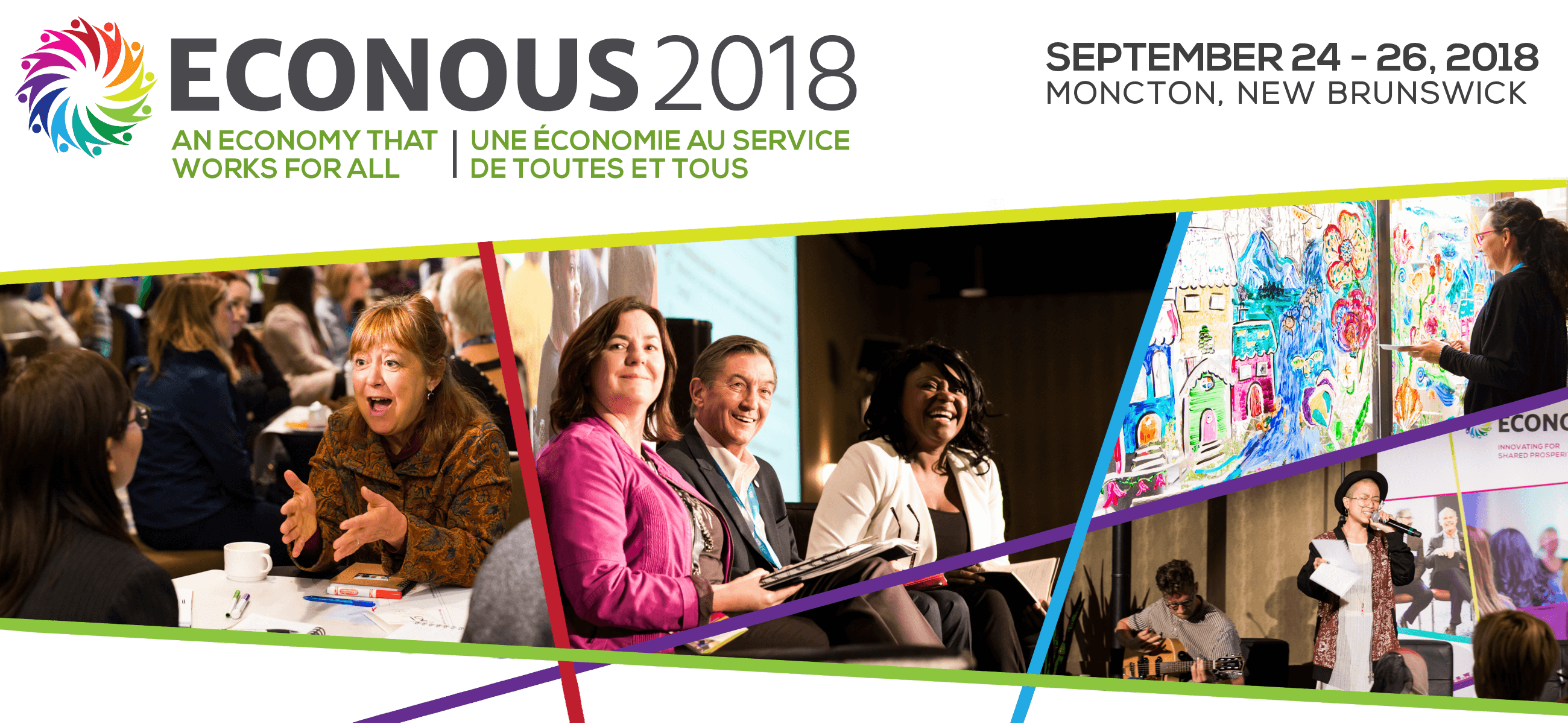 The so-called ‘sharing’ economy leaves no one indifferent. As it goes with olives or coriander, we either adopt or passionately reject these platforms which now seem, for better or for worse, ubiquitous. But if they exist, it is because their particular brand of service delivery, such as Uber or Airbnb, meets a need.
The so-called ‘sharing’ economy leaves no one indifferent. As it goes with olives or coriander, we either adopt or passionately reject these platforms which now seem, for better or for worse, ubiquitous. But if they exist, it is because their particular brand of service delivery, such as Uber or Airbnb, meets a need.
One can imagine that those who offer their time and their home through such platforms do so as a way to earn a little extra each month or to profit from the more intensive use of an asset. On the demand side, there are occasional needs that do not warrant investing in depreciable property (such as a car) or a sterile experience (such as a hotel room). The problem arises when these small innocuous transactions inevitably reach the scale required for the survival of the gigantic international platforms that facilitate them. The resulting negative impact on local markets is now well documented.
Consider also the other problematic aspects of these platforms. Service providers’ longevity depends on algorithms they do not control, rendering increasingly precarious an income on which many depend more and more. Terms and conditions do not uphold users’ safety. Revenue distribution is privatized, while negative spillover is the responsibility of the public. And let’s not forget their opaque use of the intangible (and highly marketable) assets these platforms generate, such as personal data and usage trends. In short, in their dominant form, new platforms raise important problems.
A solution does exist. It consists in correcting the problems of the platform economy by using a proven formula: cooperation.
The hypothesis is that placing the control of platforms’ infrastructure in the hands of those most affected by them could lead to many breakthroughs essential for this new economy to function fairly and viably.
Let’s start with the issues consumers and workers are concerned about. First, key elements of any given platform would become matters of particular interest to a board composed of the platform’s users. These include trust-building and service standards, conditions of use, and the algorithms governing indicators which determine the faith of a given platform’s users. Rather than be a technical matter resolved as a marketing, sales and UX concern, these core elements would be taken up as matters of corporate governance. The function of these platforms could thus be fundamentally transformed. User, rather than see their fate be contingent on financial results, would dictate the functions of the platforms based on the benefit they seek to derive from them. The instruments of new capital become its agent. The possibility of workers owning capital would be rebooted, effectively fulfilling the original promise of disintermediation made by these platforms.
A Canadian example of this approach is Stocksy, a stock photo site owned by 950 photographers and videographers and a team of about 25 employees and advisors around the world. Contrary to market standards, these photographers still own their photos, in addition to owning and governing the platform that facilitates sales. Another example: Up & Go, the result of a collaboration between co-operative incubators in New York, the philanthropic sector, and an advocacy organization for domestic workers, which supported the development of a home cleaning application owned by these women all worker owners of their own co-operatives.
Secondly, placed in the hands of agents who are committed to the sustainability of a company that serves them, the means and impact of the system would be reviewed and corrected. From an environmental, social and economic stand point, objectives could be reached collegially. One could aspire to bring into the fold partners who had previously deemed platforms unethical or illegal. This is what Fair BnB is trying to do, working side by side with the elected officials of Venice and Amsterdam to co-create a fair, collaborative and responsible solution to counteract the ‘AirBnB effect’.
A third significant implication: governed by its main stakeholders, the approval of algorithms, conditions of use and various other parameters governing the daily lives of users would serve these same users. Their control of the intangible assets, in particular the intellectual property of the codes or the personal data that we voluntarily offer by using these platforms, would be managed in a transparent and non-extractive manner. In fact, many emerging platforms propose to affect change precisely in this area of tech. Think of Savvy.coop and MiData.coop, which encourage citizens to repatriate their medical data and control its sale to pharmaceutical companies that currently obtain it in now-abundant, global data markets. In the agricultural sector, well-established co-operatives such as CBH Group in Australia and SAOS in Scotland are rethinking the use of their members’ data in order to increase the efficiency of their value chains and increase profits to members.
We are at the dawn of an experiment that will be done by and with the people that these platforms serve, rather than at their expense. Everything seems possible, because almost everything has to be created, including the conditions facilitating their success. For example, the value of platforms is notoriously volatile. In addition, their start-up cost requires risk capital that is open to absolute risk, which contradicts the tradition towards conservative investments exhibited in the co-operative sector. Let’s also think about platforms’ eventual transition to IPO, an aberration in the co-operative world. Finally, co-operative laws will have to be reviewed to leave space for realities specific to platforms: their delocalization, the complexity that results from a plurality of stakeholder types, and the trend towards distributed and decentralized governance.
Unlike many corners of the world where these platforms are emerging, Quebec boasts a robust history of cooperation. However, innumerable habits and customs of co-operatives will be disrupted in this meeting of entrepreneurial cultures. In order to see this new field of action flourish, the institutions that currently make up our co-operative ecosystem will have to become more supple and accommodate new methodologies and unlikely partners.
By Stephanie Guico, originally authored in French for Fractures, IRIS‘ member’s journal
 Stephanie Guico‘s passion and specialty? Mobilizing unlikely partners and finding points of understanding in order to create lasting impact in communities.
Stephanie Guico‘s passion and specialty? Mobilizing unlikely partners and finding points of understanding in order to create lasting impact in communities.
BA studies in political sciences and international development at McGill University (Montreal) and a Masters of Management at St Mary’s University (Halifax) provided a unique bridge between the inquisitive, analytical approach of the humanities and management’s process-oriented, problem-solving ethos. Intrigued by the ramifications of diverse actors’ participation in building and growing businesses, she focussed her MBA research on the topic of governance models’ impact on the evolutionary trends of multi-stakeholder cooperatives.
Her academic experience is enhanced by extensive field experience. She in turn contributed to the start-up of multi-stakeholder organisations, supporting feasibility processes and reviewing business plans. She also participated as an employee or director in several multi-stakeholder businesses and community organizations.
Prior to consulting, she worked with Desjardins Cooperative Group in Montreal, Canada where she played key roles amongst governance and marketing teams striving to break silos and engage workers and members alike in participatory change processes. Previously, she was Interim Program Manager at the Cooperative Development Initiative, a federal program supporting enterprise and business ecosystem development in Ottawa, Canada.
She has hosted co-creation and knowledge sharing workshops in North America, Central America and the Caribbean.
For more information, see http://www.sgui.co/
*The opinions expressed in blog posts are those of the author(s) and do not necessarily reflect the position of CCEDNet



 Since co-releasing the Social Enterprise Sector Strategy in partnership with the Government of Nova Scotia in April 2017, the network secretariat, Common Good Solutions, has been collecting and analyzing data and authoring a report that captures the promise the social enterprise sector holds for businesses pursuing positive community impact as well as profit.
Since co-releasing the Social Enterprise Sector Strategy in partnership with the Government of Nova Scotia in April 2017, the network secretariat, Common Good Solutions, has been collecting and analyzing data and authoring a report that captures the promise the social enterprise sector holds for businesses pursuing positive community impact as well as profit. In the nonprofit sector, we often seem to be fighting uphill battles trying to combat poverty and exclusion, addictions and mental illness, climate change, racism, political disengagement and many other challenges in our communities without the sense that we are making real progress against “the system.” As we work to support our community members’ access to jobs, food, and housing, and their exercise of rights, it’s easy to view our work as swimming against a tide of economic inequality, powerlessness, and a system that simply does not care.
In the nonprofit sector, we often seem to be fighting uphill battles trying to combat poverty and exclusion, addictions and mental illness, climate change, racism, political disengagement and many other challenges in our communities without the sense that we are making real progress against “the system.” As we work to support our community members’ access to jobs, food, and housing, and their exercise of rights, it’s easy to view our work as swimming against a tide of economic inequality, powerlessness, and a system that simply does not care. Liz Sutherland joined ONN in 2015 to lead policy files on funding reform, pensions, police record checks, and other policy and regulatory issues. She has worked on policy development and advocacy concerning many issues facing the sector – from health and social policy, to procurement and HR issues, to the transformation of funding models. Her nonprofit experience includes roles for organizations focused on anti-poverty, a national children’s alliance and women’s health. She has five years of government policy experience at the federal level in employment and social development, and public health. Originally from Ottawa, Liz holds a master’s degree in Political Science from the University of Victoria. She’s an active volunteer leader and sits on the boards of Cycle Toronto and Planned Parenthood Toronto.
Liz Sutherland joined ONN in 2015 to lead policy files on funding reform, pensions, police record checks, and other policy and regulatory issues. She has worked on policy development and advocacy concerning many issues facing the sector – from health and social policy, to procurement and HR issues, to the transformation of funding models. Her nonprofit experience includes roles for organizations focused on anti-poverty, a national children’s alliance and women’s health. She has five years of government policy experience at the federal level in employment and social development, and public health. Originally from Ottawa, Liz holds a master’s degree in Political Science from the University of Victoria. She’s an active volunteer leader and sits on the boards of Cycle Toronto and Planned Parenthood Toronto.
 Community organizations across Alberta have an opportunity to play a prominent role in supporting the on-going transition to clean energy by developing their own renewable energy projects.
Community organizations across Alberta have an opportunity to play a prominent role in supporting the on-going transition to clean energy by developing their own renewable energy projects. Over the past year, the Government of Canada has travelled across the country, engaging with thousands of Canadians, especially those who have lived experience with poverty, to hear their stories, ideas and feedback about reducing poverty. Today the Honourable Jean‑Yves Duclos, Minister of Families, Children and Social Development, announced the release of the
Over the past year, the Government of Canada has travelled across the country, engaging with thousands of Canadians, especially those who have lived experience with poverty, to hear their stories, ideas and feedback about reducing poverty. Today the Honourable Jean‑Yves Duclos, Minister of Families, Children and Social Development, announced the release of the 
 The so-called ‘sharing’ economy leaves no one indifferent. As it goes with olives or coriander, we either adopt or passionately reject these platforms which now seem, for better or for worse, ubiquitous. But if they exist, it is because their particular brand of service delivery, such as Uber or Airbnb, meets a need.
The so-called ‘sharing’ economy leaves no one indifferent. As it goes with olives or coriander, we either adopt or passionately reject these platforms which now seem, for better or for worse, ubiquitous. But if they exist, it is because their particular brand of service delivery, such as Uber or Airbnb, meets a need. Stephanie Guico‘s passion and specialty? Mobilizing unlikely partners and finding points of understanding in order to create lasting impact in communities.
Stephanie Guico‘s passion and specialty? Mobilizing unlikely partners and finding points of understanding in order to create lasting impact in communities. British Columbia is one of the most prosperous provinces in Canada, yet poverty remains a serious issue in many communities. According to a new report released today, key indicators of poverty remain startlingly high in the Lower Columbia Region (LCR) of BC’s West Kootenay. For example, the four local foodbanks support approximately 5,000 visits per year. Additionally 1,600 households – 1 in 5 in the region – are in housing need, and in 2013, the last year for which there is reliable data, 990 children were living in poverty.
British Columbia is one of the most prosperous provinces in Canada, yet poverty remains a serious issue in many communities. According to a new report released today, key indicators of poverty remain startlingly high in the Lower Columbia Region (LCR) of BC’s West Kootenay. For example, the four local foodbanks support approximately 5,000 visits per year. Additionally 1,600 households – 1 in 5 in the region – are in housing need, and in 2013, the last year for which there is reliable data, 990 children were living in poverty. “The on-the-ground research that has gone into the formation of this poverty reduction plan is a reminder that, in spite of economic indicators that are often trumpeted as proclamations of success, not everyone in British Columbia is sharing in the prosperity,” said Trish Garner, Community Organizer with the BC Poverty Reduction Coalition. “This plan highlights the need for concrete action at all levels of government and, hopefully, it will inform the process of the recently launched Minister’s Advisory Forum on Poverty Reduction.”
“The on-the-ground research that has gone into the formation of this poverty reduction plan is a reminder that, in spite of economic indicators that are often trumpeted as proclamations of success, not everyone in British Columbia is sharing in the prosperity,” said Trish Garner, Community Organizer with the BC Poverty Reduction Coalition. “This plan highlights the need for concrete action at all levels of government and, hopefully, it will inform the process of the recently launched Minister’s Advisory Forum on Poverty Reduction.”

 The Department of Employment and Social Development Canada launched its
The Department of Employment and Social Development Canada launched its  Andy Horsnell has worked in social enterprise throughout the USA and Canada for over 25 years, as a consultant, manager, and board member. He came home in 2010 and co-founded CGS in 2012, with the goal of transforming the role that business plays in creating thriving, prosperous communities.
Andy Horsnell has worked in social enterprise throughout the USA and Canada for over 25 years, as a consultant, manager, and board member. He came home in 2010 and co-founded CGS in 2012, with the goal of transforming the role that business plays in creating thriving, prosperous communities.